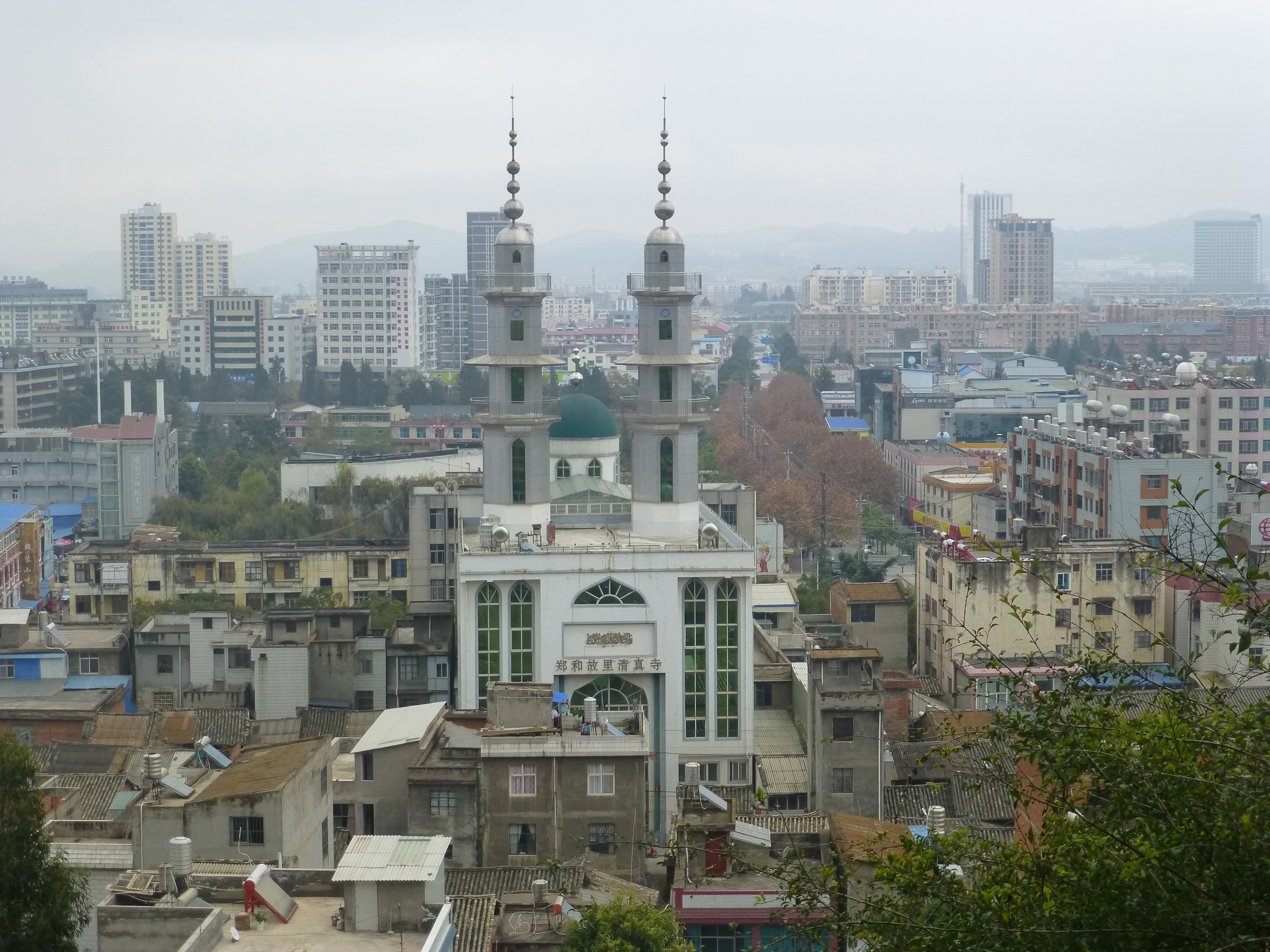
Chinese riot police raided and sealed off three mosques in Yunnan province
(Photo: Vmenkov/Wiki Commons)
Meng Yihua
Three mosques serving Hui Muslims in Yunnan, China were raided and hundreds of worshippers evicted by over 100 riot police on December 29. Yunnan is a province in southwest China, bordering Vietnam, Laos, and Burma, and is home to an estimated 700,000 Chinese Hui Muslims.
https://www.instagram.com/p/BsEBknvA15K/?utm_source=ig_share_sheet&igshid=1wkn6n3sez8ce
Videos circulated by NGO Documenting Oppression Against Muslims show police offers violently pushing their way into a mosque in the town of Weishan, dragging some men out while others try to resist. An anonymous source told BuzzFeed News that up to 50 people were arrested in the raids, however, local police have denied comment on whether arrests were made.
According to an official statement issued by Weishan’s local government, the raid was carried out in the three villages of Huihuideng, Sanjia and Mamichang, in the name of ‘protecting harmony and stability in the religious domain’. A notification on Weibo, China’s microblogging site, issued by Weishan county government, says that the three mosques were targeted on December 29 because authorities considered them to be illegally established sites, that had been organising “illegal religious education”, a violation of China’s regulation on religious affairs.
In China, religious establishments are only considered to be operating legally once they are registered and approved by the Government. One Yunnan resident, who has chosen to remain anonymous, said that the mosques have been attempting to register themselves as establishments with the Government for over a decade, but their repeated applications were rejected by local authorities.
A local Hui Muslim told Radio Free Asia that the police showed up at the Huihuideng Mosque one Saturday morning to demolish it but were unable to since a lot of Muslims gathered there, it being the village with the largest Muslim population. All three mosques remain sealed off to prevent their use in the time before the demolition. The mosque raids have come at a time when the western provinces of Ningxia and Gansu, home to the Hui Muslim minority, have also seen closures and evictions of Muslims from mosques and Islamic schools.
Despite widespread persecution of the Uyghur Muslims and other ethnic Muslim minority groups in East Turkestan, known in China as Xinjiang, the Hui had been largely left to practice in peace, given their assimilation to the majority Han Chinese. Although descended from Arab, Persian and Central Asian traders, their ancestors settled in the region, and intermarried with the locals, making the Hui far more integrated into mainstream Chinese life than the Uyghurs and other Turkic groups living in the borderlands.
Racially and linguistically, the Hui are almost indistinguishable from China’s Han majority and exist in every major Chinese city, as well as the Ningxia Hui Autonomous Region where their population is concentrated.
The mosques that were stormed by the riot police had tried to toe the party line, demonstrating their loyalty to the ruling Communist Party on the insistence of President Xi Jinping. The Huihuideng Mosque was flying the national flag and had Communist Party slogans on display, but this didn’t prevent them from being targeted. It is now believed that other Muslim groups and their respective mosques, Hui or otherwise, will also be targeted by the Government.
In November China’s Global Times reported a visit by Zhang Yunsheng, a Chinese Communist Party Chief of Ningxia, to Xinjiang to learn how the region “fights terrorism”. Yunsheng commended the region as an emulating example of how to curb the rise of terrorism.
https://muslimnews.co.uk/newspaper/top-stories/uyghur-muslims-forced-labour-chinas-concentration-camps/